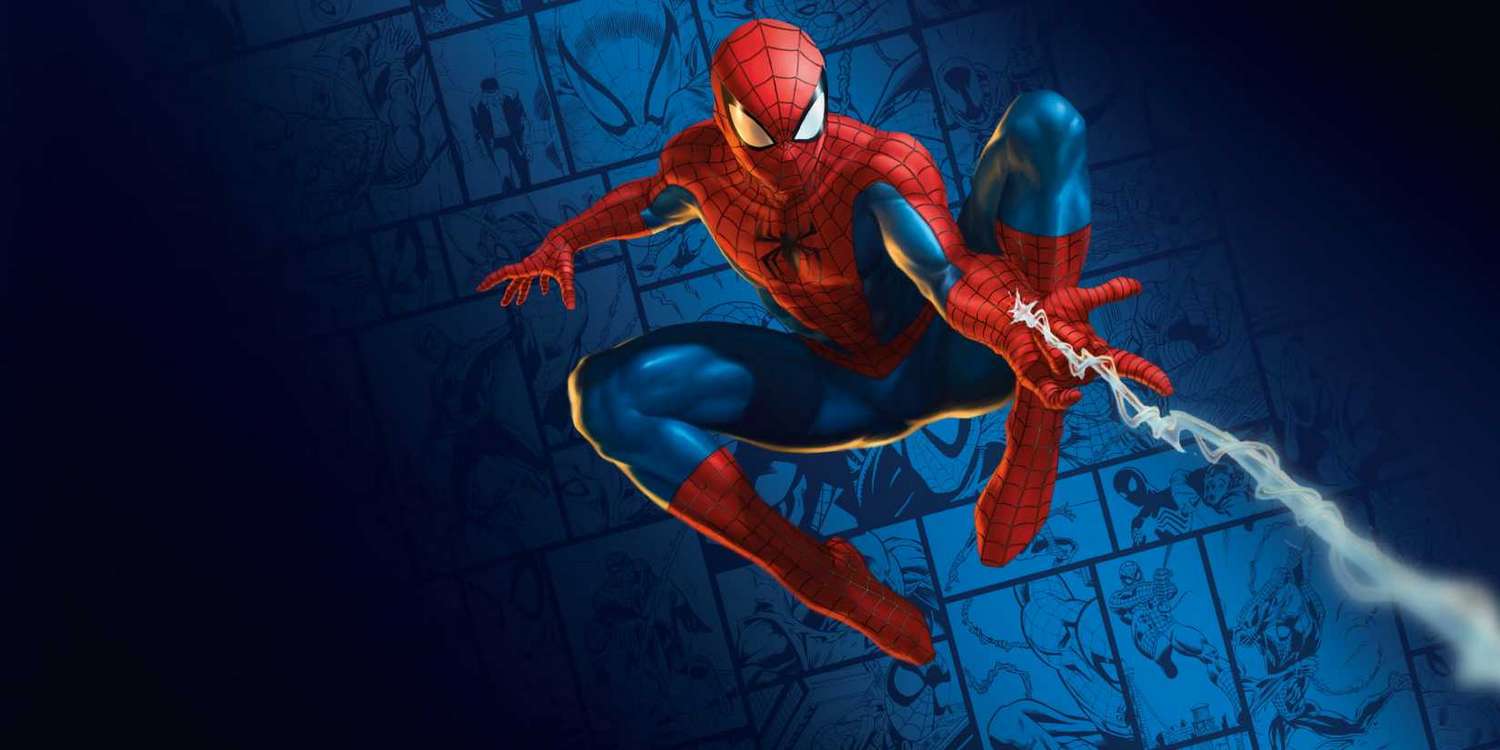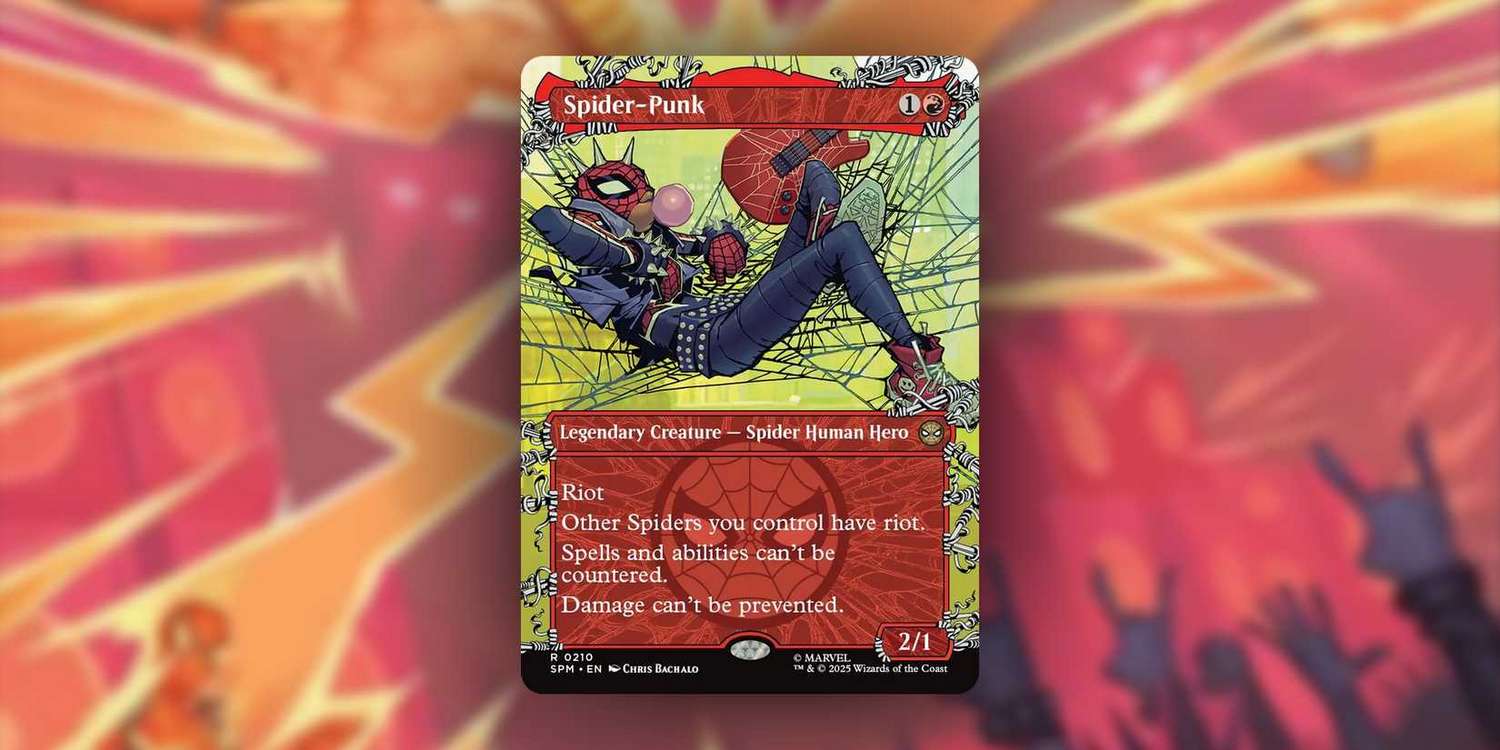MTG’s Spider-Man Set Backlash: WotC Survey Fuels Controversy with Contentious ‘Influencer’ Question
Popular Now
 R.E.P.O
R.E.P.O
 Candy Crush Saga
Candy Crush Saga
 Roblox
Roblox
 Black Myth: Wukong
Black Myth: Wukong
 Garena Free Fire: Kalahari
Garena Free Fire: Kalahari
 NBA 2K24
NBA 2K24
 Poppy Playtime
Poppy Playtime
 Free Fire
Free Fire
 Stumble Guys
Stumble Guys
 Genshin Impact
Genshin Impact 
The reception to the recent Magic: The Gathering | Marvel’s Spider-Man Universes Beyond set has been anything but spectacular, drawing significant community backlash from players and content creators alike. In a clear response to the widespread negative sentiment, Wizards of the Coast (WotC), the game’s publisher, deployed a targeted player survey aiming to dissect the set’s perceived failure. However, a specific line of questioning within the survey has not only failed to quell the unrest but has instead ignited a fresh wave of controversy, centering on the role and influence of MTG content creators.
The Heart of the Controversy: Blaming the Messenger?
The survey, intended to gather valuable player feedback on the Spider-Man product’s design, draft experience, and overall value, took an unexpected and highly scrutinized turn. For those players who indicated they received information about the set from content creators—often referred to as ‘influencers’—they were met with a pointed follow-up question. This query asked participants to what degree negative commentary from these creators had impacted their own perception of the set prior to its release. This inclusion has been widely interpreted by the Magic community as an attempt by WotC to shift the blame for the product’s poor performance away from internal design and marketing, and onto the messengers.
Professional MTG players and prominent card game streamers were quick to voice their concern and opposition, describing the question as a “witch hunt” or a thinly veiled effort to create an “influencer hit list.” Hall of Fame inductees and other highly respected voices within the community suggested that this line of inquiry demonstrates a failure of self-reflection on the part of the publisher. The core argument remains: if a product is fundamentally weak—as many contend the small, hastily designed Spider-Man set was—the negative reaction is a consequence of the product’s quality, not the reporting of that quality by independent voices.
 Analysing the Spider-Man Set’s Core Flaws
Analysing the Spider-Man Set’s Core Flaws
The underlying issues with the MTG Spider-Man set extend far beyond influencer critique. Several key factors contributed to its lukewarm reception and low sales expectations:
- Uninspired Design: Many critics pointed to a perceived laziness in card design, noting the set’s reliance on rehashing existing mechanics (like Modified and Connive) with only one new mechanic, Web-Slinging. The cards themselves, for a major Marvel crossover, often lacked the thematic punch players expected.
- Poor Limited Environment: The set’s small size and the unique ‘Pick 2’ draft format were widely panned as making the Limited play experience—a cornerstone of new set engagement—”abysmal” and repetitive, significantly impacting its value for the majority of the TCG player base.
- Flavor and Aesthetic Disconnect: The grounded, street-level New York City setting, featuring mundane “filler cards” like a Hot Dog Cart and Subway Train, failed to capture the fantastical, high-stakes essence that typically defines Magic: The Gathering sets, even those in the Universes Beyond line.
- Market Saturation and Price Point: Amid a continuous flurry of new releases and noticeable price increases on sealed product, the Spider-Man set struggled to justify its cost when the in-game power level and design novelty were deemed low. This environment of “product fatigue” and high CPC keywords related to trading card investment only exacerbated the sense of disappointment when the set underdelivered.
 Wizards’ Response and the Future of Universes Beyond
Wizards’ Response and the Future of Universes Beyond
In the wake of the survey backlash, a WotC representative publicly acknowledged that the controversial question was poorly phrased and that its intent was merely to gauge the various sources of player information and influence, not to target creators. However, this clarification did little to soothe the escalating tension. The incident has raised critical questions about the nature of the relationship between game publishers and the independent media outlets and creators who sustain the game’s ecosystem.
Despite the Spider-Man stumble, the broader Universes Beyond initiative, which brings other intellectual properties into the MTG multiverse, remains a significant commercial success for WotC and its parent company, Hasbro. Upcoming crossovers, including projects with PlayStation properties, Star Trek, and Teenage Mutant Ninja Turtles, confirm that the strategy is not being abandoned. Yet, the fervent player response to the Spider-Man survey serves as a vital signal: the demand for high-quality design, innovative mechanics, and strong play value in every release—regardless of the IP attached—is non-negotiable for maintaining long-term player engagement and the financial health of the brand. The community expects WotC to internalise the lessons learned, focusing their data-gathering efforts on true product weaknesses rather than seeking external scapegoats for internal design choices.






 Analysing the Spider-Man Set’s Core Flaws
Analysing the Spider-Man Set’s Core Flaws Wizards’ Response and the Future of Universes Beyond
Wizards’ Response and the Future of Universes Beyond